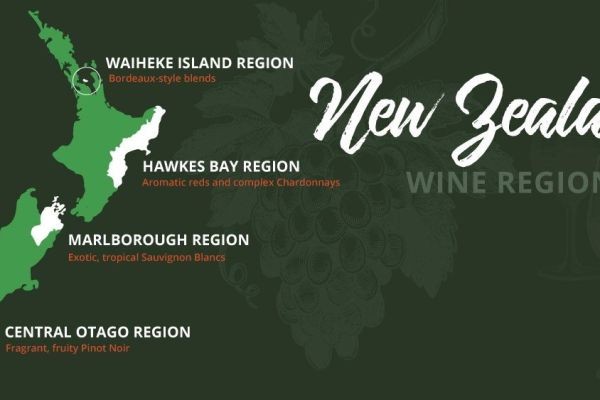In today's digital landscape, the power of micro-influencers in personal branding is becoming increasingly significant, particularly for professionals in niche markets like commercial real estate. As a commercial real estate broker in New Zealand, leveraging micro-influencers can offer a competitive edge, allowing you to reach targeted audiences with personalized messages and authentic engagement. This article delves into how micro-influencers can redefine personal branding within the New Zealand context, supported by local trends, data, and real-world examples.
Case Study: The Impact of Micro-Influencers in New Zealand Real Estate
Consider the case of a Wellington-based real estate agency that faced challenges in reaching younger demographics. By collaborating with a micro-influencer known for her expertise in sustainable living and urban development, the agency was able to increase its social media followership by 35% over six months. This strategic partnership not only expanded their brand visibility but also led to a 20% increase in inquiries from potential first-time home buyers.
This example illustrates the potential of micro-influencers to bridge the gap between traditional real estate marketing and the digital preferences of younger Kiwis. According to Stats NZ, the digital engagement of younger demographics in property-related content has been steadily rising, emphasizing the importance of strategic influencer partnerships.
Why Micro-Influencers Matter in New Zealand's Economy
Micro-influencers, defined as those with 1,000 to 100,000 followers, are particularly effective in niche markets due to their authentic and engaged audiences. Unlike celebrities or macro-influencers, micro-influencers offer high engagement rates, often leading to better ROI for businesses. In New Zealand, where the real estate market is highly localized and community-driven, micro-influencers can provide a personal touch that resonates with local audiences.
Data from the Reserve Bank of New Zealand highlights the increasing importance of digital strategies in financial sectors, including real estate. As the market becomes more competitive, leveraging the credibility and trust of micro-influencers can differentiate brokers in a crowded marketplace.
The Pros and Cons of Engaging with Micro-Influencers
Understanding the benefits and challenges of working with micro-influencers is crucial for effective strategy development:
Pros:
- Authenticity: Micro-influencers are perceived as more relatable and trustworthy by their followers.
- Higher Engagement Rates: They often have higher engagement rates compared to larger influencers, leading to more meaningful interactions.
- Cost-Effective: Collaborations with micro-influencers are generally more affordable than those with high-profile figures.
- Targeted Reach: They allow for highly targeted marketing to specific demographics or interest groups.
Cons:
- Limited Audience Size: Their smaller followings mean limited reach in comparison to macro-influencers.
- Varied Quality: The quality of content and professionalism can vary significantly among micro-influencers.
- Time-Intensive: Managing multiple micro-influencer relationships can be time-consuming.
Debunking Common Myths About Micro-Influencers
Myth: Micro-Influencers Have No Real Impact
Reality: Contrary to this belief, micro-influencers often achieve higher engagement rates. A study by Influencer Marketing Hub found that micro-influencers have up to a 60% higher engagement rate compared to their macro counterparts, making them a powerful tool for personalized marketing strategies.
Myth: They Are Not Professional
Reality: Many micro-influencers are highly professional and treat their platforms as businesses. Their dedication to niche markets often results in high-quality, authentic content that resonates well with their audience.
Future Trends: The Growing Role of Micro-Influencers in New Zealand
As digital marketing evolves, the role of micro-influencers is expected to grow significantly. By 2026, it's predicted that over 50% of New Zealand businesses will leverage micro-influencers as part of their marketing strategies, according to a report by the Ministry of Business, Innovation, and Employment (MBIE). This shift highlights the increasing importance of authenticity and engagement in consumer interactions.
Conclusion
The power of micro-influencers in personal branding, especially in New Zealand's commercial real estate sector, cannot be underestimated. By understanding and leveraging the unique strengths of these influencers, brokers can enhance their reach, engagement, and ultimately, their bottom line. As the digital landscape continues to evolve, staying ahead of trends and incorporating micro-influencers into your marketing strategy will be crucial for success.
What's your experience with micro-influencers in the real estate industry? Share your insights and join the conversation below!
People Also Ask
- How do micro-influencers impact the real estate market in New Zealand? Micro-influencers enhance brand visibility and engagement, particularly among younger demographics, by providing authentic content that resonates with local audiences.
- What are the benefits of using micro-influencers? They offer high engagement rates, authenticity, and cost-effectiveness, making them ideal for targeted marketing campaigns.
- How can real estate brokers find the right micro-influencers? Brokers should look for influencers whose audience aligns with their target market and who demonstrate genuine passion and expertise in the real estate sector.
Related Search Queries
- Micro-influencers in New Zealand real estate
- Benefits of micro-influencer marketing
- How to collaborate with micro-influencers
- Micro-influencer engagement strategies
- Trends in influencer marketing NZ
































eduardoberryhi
9 months ago